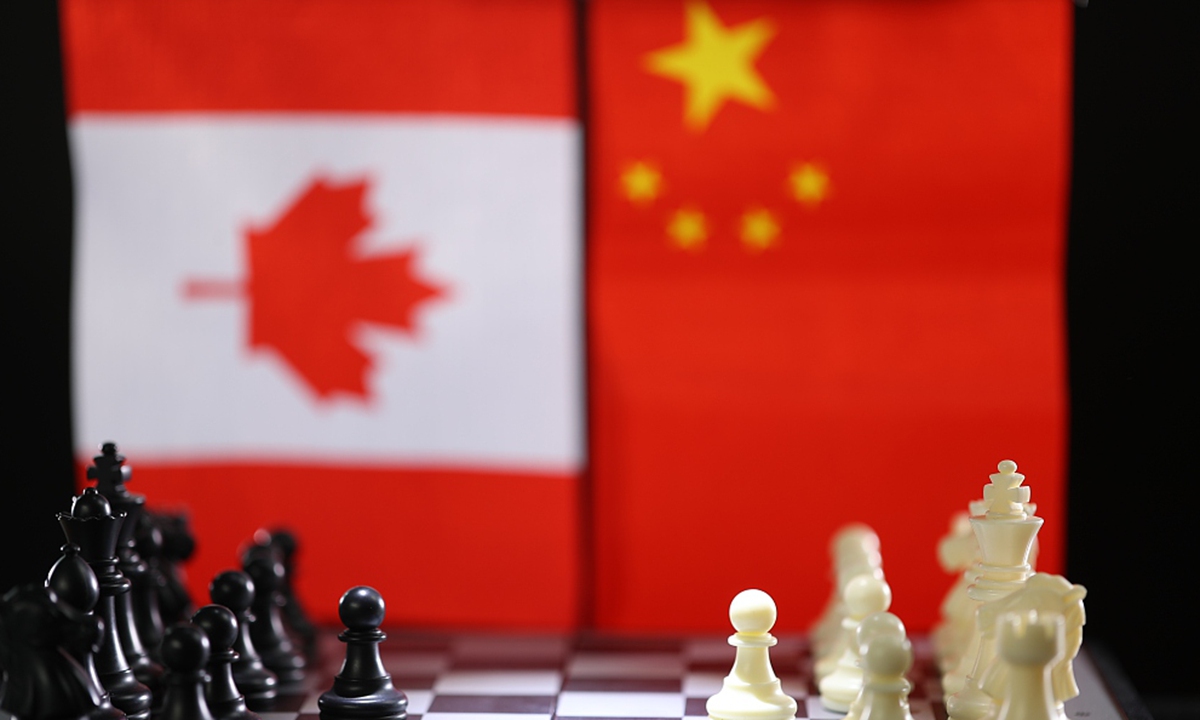
China Canada Photo: VCG
China's Ministry of Commerce (MOFCOM) launched an anti-discrimination investigation on Thursday into Canada's tariff hikes on electric vehicles (EVs) as well as steel and aluminum products imported from China,
mk after initial results uncovered this discriminatory approach.
The investigation has commenced in accordance with Article 36 and Article 37 of China's Foreign Trade Law, the MOFCOM announced, noting that the investigation will typically last for three months and can be extended under special circumstances, according to a statement posted on its website.
The Canadian side imposed discriminatory and unilateral restrictions on Chinese imports in spite of opposition and dissuasion from all sides. In response, China initiated the investigation in accordance with Chinese law, He Yongqian, a spokesperson of MOFCOM, said at a press conference on Thursday, noting that China will take all necessary measures to safeguard the legitimate interests of its companies.
The investigation will be carried out in an impartial, fair and open way, He said.
According to the Xinhua News Agency, it is learned that this was the first such investigation initiated by China and also the first of its kind in the world.
In addition to launching an anti-discrimination probe, China also initiated dispute settlement proceedings at the WTO on September 6 by requesting consultation over Ottawa's tariff hikes.
Chinese experts said that the measures taken by the Chinese side are in line with Chinese laws and regulations as well as WTO rules, and they slammed Canada's move to politicize trade matters and stir up trade friction by following moves by the US, which will cause the country to "lose a great deal."
Blind to the fact that China and Canada are naturally complementary trade partners, Canada has gone further on the road to curb China's emerging sectors under the instigation of the US, Lü Xiang, a research fellow at the Chinese Academy of Social Sciences told the Global Times on Thursday.
The Canada-provoked trade disputes with China will prompt China to take countermeasures. The country may bear serious consequences from the resulting economic and trade friction, while the impact on China will be negligible, Lü said. "Canada needs to seriously reflect what it can gain by being a pawn of the US."
Having long exercised restraint in relation to the actions of relevant countries and only taking countermeasures when forced to do so, the intention of China's probes and measures is not aimed at undermining China-Canada relations, but at bringing Ottawa back to reason at an earlier date, Lü said.
Bian Yongzu, an executive deputy editor-in-chief of Modernization of Management magazine, told the Global Times that by confronting countries that pay no heed to WTO rules, China is safeguarding the rules-based system of the WTO.
In order to ensure the long-term healthy development of China-Canada trade and economic ties, it is necessary to safeguard the rules and regulations when they are violated by politically charged actions and draw a clear bottom line to counter Ottawa's unilateral actions, Bian said.

